It seems there is some movement by the UK government and the Arts Council England, soliciting
“new guidance for the UK museum sector on the restitution and repatriation of cultural objects“.
The following solicitation has been posted on 10-Jan-2020 to Contracts Finding by 
The Arts Council England
Published date: 10 January 2020
Description
Arts Council England (ACE) seeks a supplier to produce new guidance for the UK museum sector on the restitution and repatriation of cultural objects. The overarching aim of this work is to create a comprehensive and practical resource for museums to support them in dealing confidently and proactively with all aspects of restitution.
Restitution and repatriation of objects in museum collections is an area of increasing focus and debate across the UK and international museum sector. This is particularly, although not exclusively, focused on objects in Western museums acquired by European nations from former colonies, and links to wider agendas around decolonising museums. There is significant government, public and press interest and increasing calls for action by UK museums and sector bodies to address this agenda.
Following initial discussions facilitated by ACE with colleagues from across the UK museum sector it was agreed that new practical guidance for museums is an appropriate first step in response, and that ACE as the national development body for museums in England and with its statutory responsibilities for cultural property is best-placed to lead this work. The most recent sector guidance, published in 2000 by the Museums and Galleries Commission, is now out of print and very out of date.
It is anticipated that this work will be undertaken through a review of existing research and evidence as well as extensive consultation with practitioners and stakeholders across and beyond the UK museum sector, to identify key challenges, opportunities, practical and ethical issues and examples of best practice in the UK and internationally.
This work will also inform ACE’s policy and strategy on this rapidly developing agenda and help identify further potential further actions for ACE and other sector bodies to support museums, facilitate ongoing dialogue and promote best practice across the sector.
Source: 
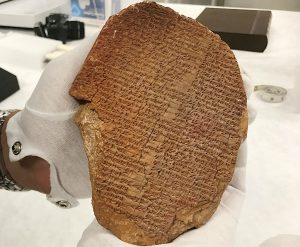 The Gilgamesh Dream Tablet is described as “stolen Iraqi property” in a civil complaint filed Monday. Federal authorities say the tablet was illegally imported into the US and they want the rare artifact returned to Iraq.
The Gilgamesh Dream Tablet is described as “stolen Iraqi property” in a civil complaint filed Monday. Federal authorities say the tablet was illegally imported into the US and they want the rare artifact returned to Iraq.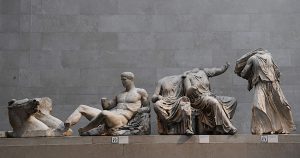
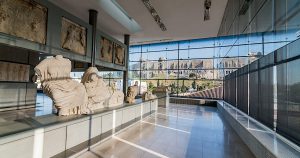
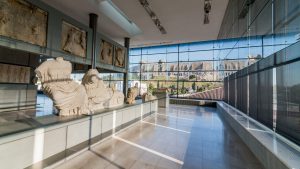
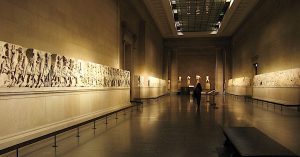
Recent Comments